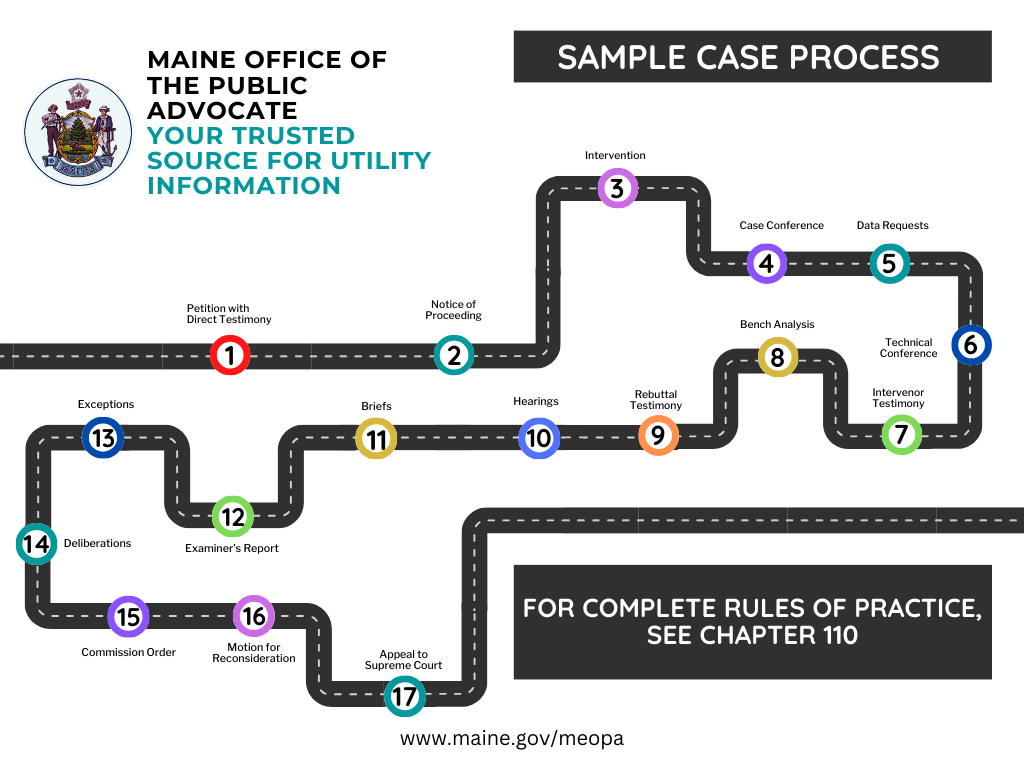The Public Utilities Commission (PUC) regulates utilities operating in the State of Maine. Residents are able to participate in ongoing cases before the Commission.
If you are interested in participating in a case at the Public Utilities Commission, you have several options regarding your involvement as outlined below.
- File a public comment – Public comment is welcome in most Commission cases. Written comments are included in the case file and considered by the Hearing Examiners and Commissioners prior to issuing their ruling in a case. However, facts included in these comments cannot be included in the ruling as they are not provided as sworn testimony. You can submit your public comment to the Commission online using the Commission’s Case Management System (CMS). Note: You will need to know the docket number to submit your comment. You may also mail public comments, again referencing the docket number, to Maine Public Utilities Commission, 18 State House Station, Augusta, ME 04333-0018.
- Speak at a public witness hearing – In a small number of cases, the Commission will hold a public witness hearing in order to allow customers of a utility the opportunity to comment on the case. A notice of the hearing is required to be published in a state-wide newspaper seven days prior to the event. For additional information on public witness hearings, please visit our Public Witness Hearings page.
- Join the case notification list – If a case is of interest and you would like to be informed about developments as the case progresses, you can join the case notification list (which is part of the CMS system). In order to join the notification list, you will need to create an account in CMS and subscribe to the specific case. This system sends an email alert each time a new document is added to the case file.
- Become an active party – This level of participation is the most involved and the most beneficial to someone who has a significant interest in the outcome of a case. To be an active party in the case, you will need to file a petition to intervene at the Commission, using the docket number of the case. Active parties can submit data requests, ask questions at hearings or technical conferences and submit testimony and evidence in the case. For an example, please download our template Petition to Intervene (Word).
This explanation is intended to help you decide your level of participation, but for additional details, please read our guide Ways to Participate at the Commission (PDF).
Sample PUC Case Process
Below is a sample case process. Your individual case may be shorter or longer than what is shown below. For complete Rules of Practice and Procedure at the Public Utilities Commission, please download Chapter 110 (PDF).
